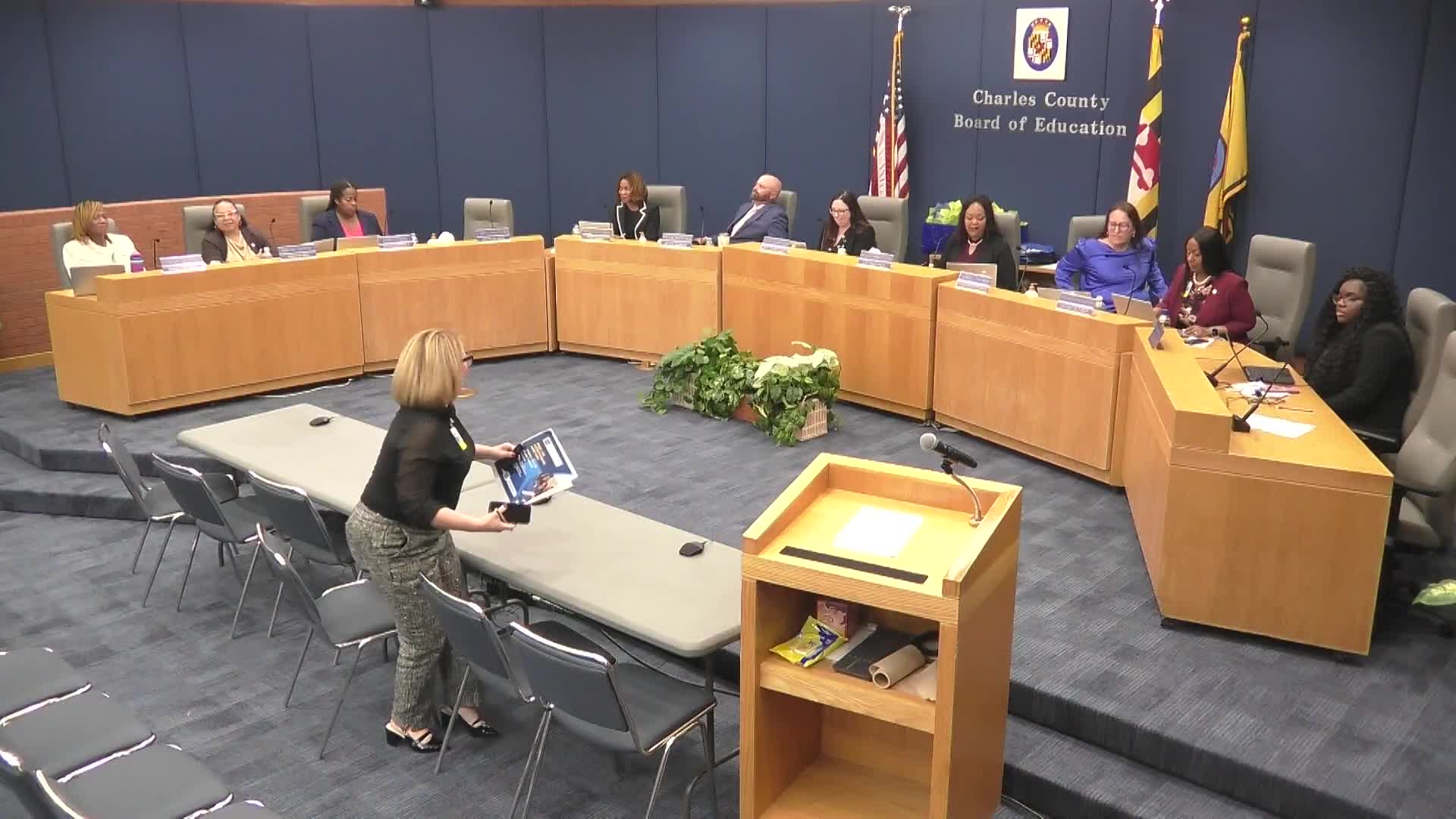Charles County board backs staff to design peer-court pilot for FY27
Get AI-powered insights, summaries, and transcripts
Subscribe
Summary
The Charles County Board of Education on Nov. 4 asked staff to prepare a FY27 pilot plan and budget for a student peer‑court restorative justice program, modeled on a long‑running Utah program.
The Charles County Board of Education on Nov. 4 asked staff to develop a pilot plan and budget for a peer-court restorative justice program to begin in fiscal 2027. Chairperson Janelle Morley described the model as an alternative to punitive discipline and said staff should return with implementation details and a proposed line item for the FY27 budget.
The board heard a detailed briefing on the Canyons (Utah) peer-court model from school staff and recommended local modifications: start in upper elementary (fourth/fifth grade), recruit older students to serve as peer jurors and litigants, and use trained staff to provide follow-up supports. Student-engagement specialist Charles Gammons and other staff emphasized that the local design should pair restorative dispositions (apologies, community service, restorative circles) with concrete supports and case management rather than simply substituting a new label for existing sanctions.
Supporters told the board that peer-driven restorative programs reduce recidivism by helping children understand the impact of misconduct and giving them community-based corrective steps. Several board members said they liked the concept because it creates student leadership opportunities and gives peers a role in remediation and conflict repair. Community volunteers and existing law-enforcement teen‑court partners were discussed as potential collaborators. The board emphasized privacy protections and requested clear parental-notification procedures.
The board did not adopt a final policy or allocate funds at the meeting. Instead, it reached unanimous consensus to direct the superintendent to return with a detailed FY27 proposal that includes: staffing estimates (a PPW or 1–2 FTEs was suggested), training plans for student participants, an outline of restorative dispositions, transportation/logistics options (walkable school sites or virtual options were discussed), and an estimate of start-up and ongoing costs. Staff were also asked to identify potential grant or partner funding and to describe how success would be measured.
Next steps: staff will produce a proposal and budget options for the board in January, including a draft program manual addressing eligibility, parental consent, privacy, and the relationship between peer-court dispositions and other disciplinary processes.
